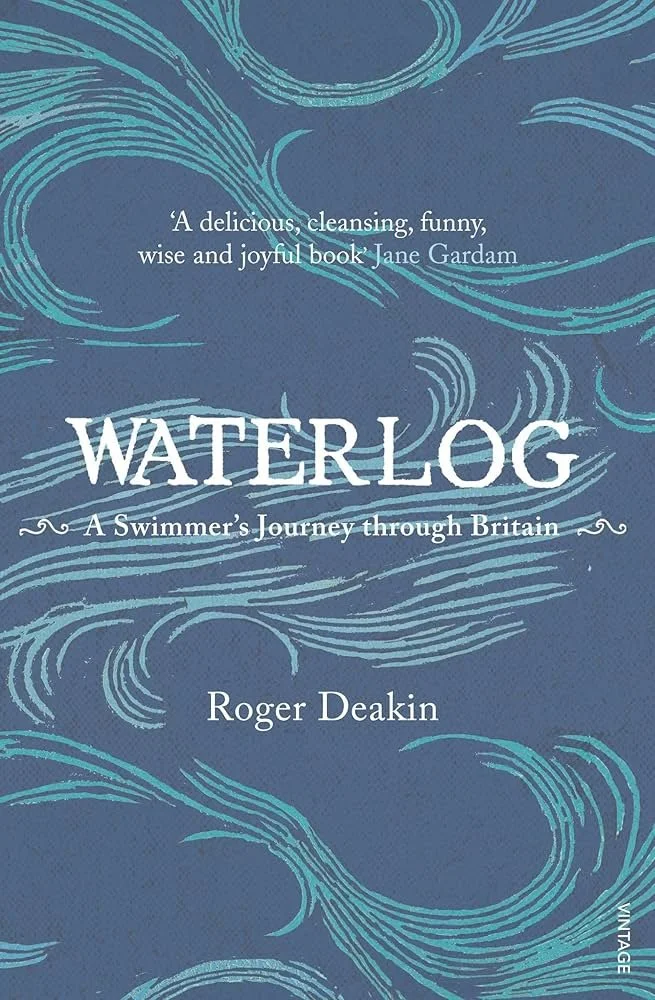Waterlog - Roger Deakin - Book Review
Waterlog is the book that lit the fuse under the modern wild swimming movement. Deakin’s journey literally swimming around Britain became a manifesto for getting wet and getting free - here. But for me, it also felt like tracing the first strokes someone had ever drawn on a blank canvas. I’ve always felt grateful to follow in those footsteps, and at one point even plunge deeper.
Tracing the Gorge
In Waterlog, Deakin writes about Hell Gill Gorge the wild limestone amphitheatre cutting through Cumbria’s borderlands. He admires it, flirts with its edges… and turns back. On that day he doesn’t descend. But in 2015, my brothers and I were so inspired by his writings that we did exactly that. As part of our Swim the Eden expedition (a 145km swim of the River Eden) we knew we would have to tackle the gourge. This is because after it’s source bubbles up in the hills it descends downhill and cascades through Hell Gill. After some painful bruises, lots of laughter and hurtling down drop after drop we slid through those natural limestone twists and turns. We weren’t as graceful as Roger could have been, but we made it waterlogged, battered, and victorious.
There’s a line in his writing about Hell Gill where he describes them as “smooth limestone cups… plunging into the unknown”. When I finally slid down that gorge, that phrase struck me as an invitation and then a challenge. We didn’t just swim into the gorge; we tumbled into Roger’s imagination.
Tumbling into Roger’s imagination
The Power of the Native Swimmer
Deakin is a native swimmer, by which I mean someone who water wasn’t a place to train it was home. He swims out of a canoe moored in his Suffolk moat with the self-assurance of someone who belongs there. He is at home in the water, he doesn’t care about speed, distance and I’m sure Strava Kudos would have infuriated him. I don’t know if it was his intention but reading Waterlog changed me and countless others. His ‘frogs eye view’ forced us to see the UK and our own waterways from a different perspective. And the movement he started? It’s huge now: wild swimming is practically a mainstream ritual, there’s even people who call themselves wild swimming brothers or swimfluencers ;)
The Writing: Playful, Poetic, Defiant
Deakin’s prose crackles with the same energy that pumps through you when you first jump into cold water. It’s conversational (“native swimmer’s right to roam”), poetic (“frog’s‑eye view”), philosophical (“a leaf on the stream, free at last”). The laugh-out-loud moments compete with quiet wonder. You feel the thrill of wild places and the impossibility of unseeing them again. There is no superiority to his prose, he is inviting and doesn’t alienate non-swimmers. He writes for a broad tribe and it is this ability which impacted us.
Where He Stops, We Continue
He dipped, hesitated, retreated. We descended. That’s not a critique it’s a testament to his generosity. By mapping that path, Roger left an invitation. Our Hell Gill swim wasn’t a bid to be braver it was us saying, “Thanks for lighting the torch. Now watch us follow it.”
All three of us were full of laughter and adrenaline that day: the drip-chatter of cold water, the crunch of boots on wet rock, the shared look of “did we just do this?” We took his words, ran with them (or, well, slid with them), and made our own splash.
Final Thoughts: Roger Deakin – the GOAT of Wild Swimming
Roger Deakin isn’t just a writer or a nature lover he’s the pioneer, the grandfather of modern wild swimming. Waterlog changed how Britain and the world sees its waters. He evangelised permission: swim in your moat, your pond, your river… your gill. And so many of us followed.
He gave us words; we gave our strokes. He started the movement. He sparked our Hell Gill descent. He is the GOAT of wild swimming.
If you’ve ever felt the thrill of cold water against your skin, if you’ve ever seen the world differently from the water’s surface thank Roger. And maybe follow him down the gorge.
Thank you for everything Roger!




